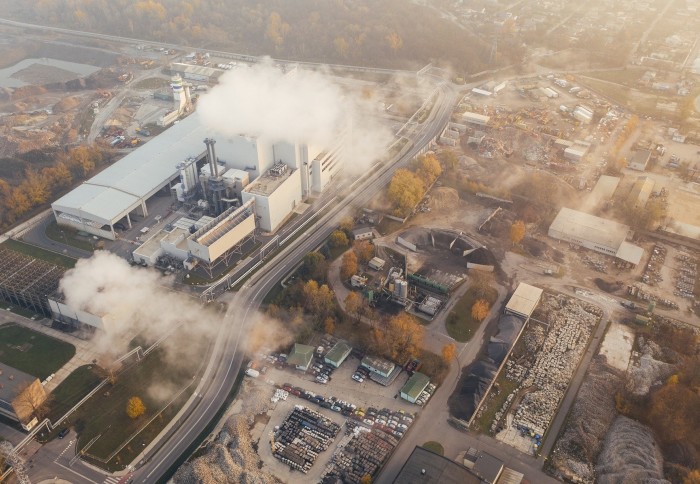Imperial to play a key role in establishing a circular chemical economy
by Sara West

The new £4.3m National Interdisciplinary Centre for Circular Chemical Economy is part of a £22.5m initiative announced by the Government.
The Centre is one of five new Interdisciplinary Circular Economy Centres announced by UK Research and Innovation (UKRI) to investigate how to use less resources and produce less waste when producing chemical-based materials.
It will be based at Loughborough University and involve partners from Imperial College London, Cardiff, Heriot-Watt, Liverpool, Newcastle and Sheffield. The collaboration will develop new transformative technologies to help reduce the chemical industry’s environmental impact, with a particular focus on recovering and reprocessing olefins.
Olefins are the raw materials used for 70% of all organic chemical production. They are derived from natural gas and crude oil and used in products such as synthetic fibres, plastics and detergents.
"The close collaboration between academics and industry will be central to creating a sector-wide solution to the reliance on fossil fuel resources." Professor Benoit Chachuat Department of Chemical Engineering
Academics from the Department of Chemical Engineering and the Centre of Environmental Policy at Imperial will lead the workstream on process integration and whole system analysis of the project. By applying advanced techno-economic modelling and life-cycle assessment, their aim is to predict which technologies, both established and new, will perform best at scale and enable circularity.
Imperial lead Professor Benoit Chachuat said: “The close collaboration between academics and industry will be central to creating a sector-wide solution to the reliance on fossil fuel resources. Our ambition is to reduce the amount of plastic waste and greenhouse emissions produced in the UK."
The centre will be supported by more than 20 industrial and international partners, ranging from multinationals such as ExxonMobil, Shell and Unilever to SMEs and national and local initiatives, as well as partners from all sectors of the construction industry.
Professor Niall Mac Dowell, Imperial co-lead, commented: “We know that there must be a better balance between meeting our material needs and the environmental impact. The circular economy concept will likely have large role to play in the UK’s transition to net zero, so understanding the value potential associated with this idea is key”.
-
The centres are funded by the UKRI Strategic Priorities Fund, and delivered by the Arts and Humanities Research Council (AHRC), Biotechnology and Biological Sciences Research Council (BBSRC), Economic and Social Research Council (ESRC), Engineering and Physical Sciences Research Council (EPSRC), Natural Environment Research Council (NERC), and Innovate UK, with DEFRA and BEIS.
Main image: Pixabay
Article text (excluding photos or graphics) © Imperial College London.
Photos and graphics subject to third party copyright used with permission or © Imperial College London.
Reporter
Sara West
Communications Division